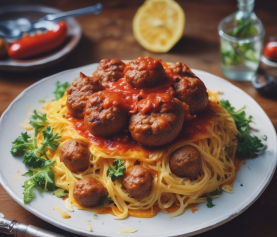You Are What Your Meat Eats – How to Choose the Healthiest Meats
When I first meet with a client I always ask whether they purchase organic animal meats and poultry. It is most concerning to me when someone not only doesn’t purchase organic but is also eating out frequently at places that do not have organic animal protein choices.
Cows, chickens, and other animals raised for food are naturally adapted to consume diets that align with their evolutionary biology. Cows are ruminant animals designed to graze on grasses and legumes, utilizing their complex digestive system to ferment plant material. Chickens are omnivores that forage for seeds, insects, worms, and vegetation, obtaining a varied diet rich in protein and nutrients. Similarly, pigs are omnivorous scavengers that consume a diverse range of foods including roots, plants, insects, and small animals. When allowed to express their natural behaviors and consume diets reflective of their natural preferences, these animals tend to be healthier and produce meat, eggs, and dairy products with superior nutritional profiles.
Conventional animals raised for food are typically raised in concentrated animal feeding operations (CAFOs), where they’re often confined in crowded indoor spaces with limited access to outdoor areas. Their diets are primarily composed of grain-based feeds that if not organic contain GMO’s and are supplemented with growth hormones and antibiotics to promote rapid growth and prevent disease outbreaks. This intensive farming method prioritizes efficiency and mass production over animal welfare and natural behaviors, resulting in meat, eggs, and dairy products that may have lower nutritional quality and potentially higher levels of environmental contaminants.
Non-organic or conventional animal products contain chemicals, hormones and antibiotics, all of which are harmful to our health. I tell people that you are what your meat eats so if your meat is eating GMO foods, hormones and antibiotics, you are also ingesting those substances. Animals that are raised on grain verses a natural diet will also be higher in inflammatory omega-6 and lower in healthy omega-3 fatty acids. Which would you rather be putting into your body for optimal health and weight loss?
Following are 7 reasons your meat should always be organic and 1 reason why ideally it should be 100% grass-fed. Keep in mind that grass-finished is not the same unless it is 100% grass-fed. The grass-finished might have spent most of their lives eating grains, making them higher in omega-6 fatty acids and lower in optimal omega-3 fatty acids.
1. Organic animal production does not use antibiotics. Antibiotics in animal products can harm our health in several ways. First, when antibiotics are used on animals, bacteria can become resistant to them, leading to antibiotic-resistant bacteria. This means that if people become infected with such bacteria, the antibiotics used to treat the infection may not be effective. Second, antibiotics can also cause disruption to the natural balance of the gut microbiome, leading to gastrointestinal issues and other health complications. Finally, antibiotics can also lead to the spread of antibiotic-resistant genes to other bacteria, which can further reduce the effectiveness of antibiotics.
2. Organic animals are not given additional hormones. Hormones are naturally occurring molecules in both animals and humans that are used to regulate bodily functions. The hormones found in animal products are created in the same way as our own hormones, but they can be administered in higher doses than what our bodies naturally produce. These higher doses can have an effect on our hormones, leading to health issues such as increased risk of cancer, reproductive issues, and weight gain. For example, studies have shown that higher levels of estrogen in animal products can increase the risk of breast cancer. Additionally, increased levels of hormones can lead to increased aggression and aggressive behavior. Children fed diets of non-organic protein sources may develop early puberty symptoms from the excess hormones accumulating in their bodies.
3. Organic animals are not fed GMO foods. Studies have shown that animals fed GMO foods can be harmful to human health in a number of ways. For example, some studies have found that GMO foods can contain higher levels of toxins and allergens, which can cause adverse health effects in humans who consume them. Additionally, GMO foods may pose a risk of introducing novel allergens and toxins into the food supply, as well as long-term health effects such as cancer and endocrine disruption. Furthermore, GMO foods may lead to the emergence of antibiotic-resistant bacteria, which could have serious consequences for human health. Finally, some research has suggested that GMO foods can lead to increased antibiotic use in animals, which could contribute to the development of antibiotic resistance in humans. Keep in mind that organic animals might also be grain-fed which means they will not have the ideal healthy fat ratios.
4. Organic animal proteins are produced in a way that is more respectful of animal welfare. Organic farming practices ensure that animals are raised in a humane and stress-free environment. Animals raised in humane conditions are typically less stressed and healthier than animals raised in intensive confinement systems, leading to a higher quality of meat. Studies suggest that humanely raised animals are more likely to produce meat with higher levels of beneficial nutrients, such as omega-3 fatty acids and antioxidants, as well as higher levels of flavor and juiciness.
5. Organic animal proteins are more nutritious than their non-organic counterparts. Organic animal proteins contain more good omega-3 fatty acids, less cholesterol, and more antioxidant as well as and contain higher levels of vitamins and minerals.
6. Organic animal proteins are better for the environment. Organic animal products are better for the environment because they are produced without the use of synthetic fertilizers, hormones, or pesticides, which can pollute water sources and damage soil and air quality. Organic animal products are also produced with fewer resources and fewer emissions. Organic farms are also better for local wildlife habitats, as they are more likely to be home to diverse plant and animal species than traditional, non-organic farms.
7. Organic animal proteins are safer for consumers. Unlike conventional animal proteins, organic animal proteins are not contaminated with heavy metals, antibiotics, hormones, and other dangerous substances.
8. Ideally, your meat should always be 100% grass-fed. In fact, 100% grass-fed animals might still be receiving antibiotics, hormones and other dangerous substances if they are not also organic. To save money, however, finding 100% grass-fed non-organic certified products that might be cheaper would just require you to look into the farming practices and make sure they are also not using any unnatural substances in their farming. Some farms, especially smaller ones, will not pay to have their products certified organic but despite not being certified organic, these farms may still adhere to organic principles, such as avoiding synthetic pesticides and fertilizers, promoting soil health, and providing animals with access to pasture and natural behaviors.
In conclusion, it is important to remember that you are what your meat eats so if your meat is eating GMO foods, hormones and antibiotics, you are ingesting these harmful substances also. We can’t always control what we eat outside of the home but we can always be sure to buy organic free-range or pasture-raised poultry, pasture-raised eggs, grass-fed organic beef and bison and organic pork products. On a side note, fish is not labeled organic so finding clean fish sources, preferably wild caught and limiting consumption to about 3 servings per week will limit the intake of harmful heavy metals and toxins found in fish.
Are you looking to transform your health? Mary works with clients all over the country developing personalized nutrition and exercise plans for weight loss and health. If you’re ready to get started on your journey to health and wellness contact her today!
Visit BodyDesigns Two Week Detox Plan or BodyDesignsbyMary for more information.












